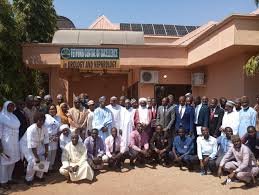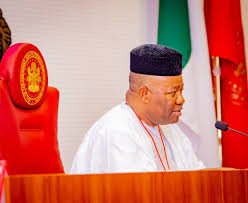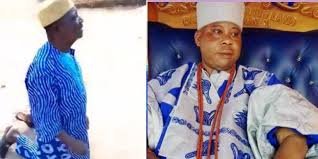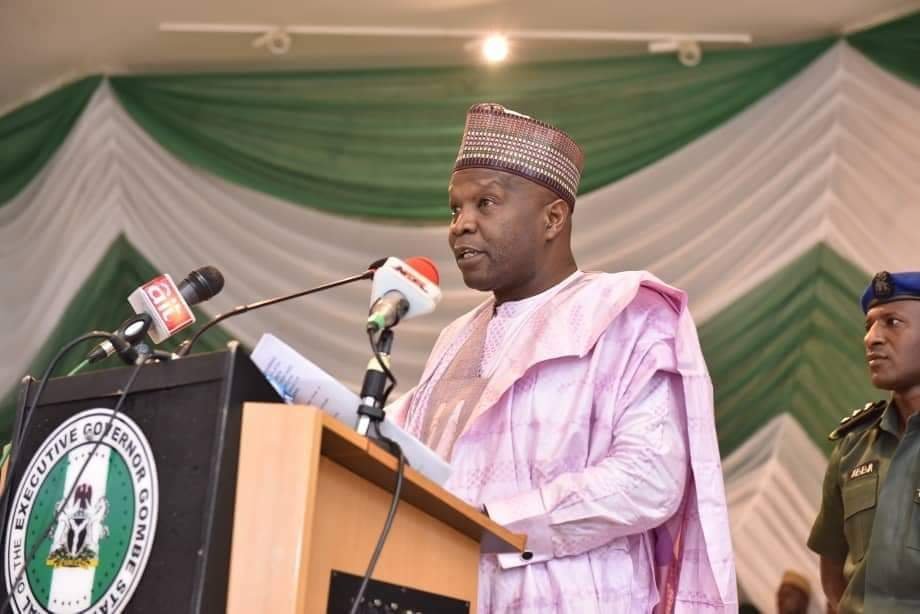By Abubakar Yunus, Abuja
Recently, FCT natives through the Abuja Original Inhabitants Youth Empowerment Organisation (AOIYEO) presented their Charter of Demands to Presidential candidates ahead of the 2023 elections.
According to the group, the charter responds to the over forty years of historic injustices, marginalization and exclusion suffered by the natives since the relocation of the Nigerian capital from Lagos to Abuja.
Abuja Residents Task FCTA With Easing Access To C of O for Speedy Devt
One of the complaints the FCT Original Inhabitants have been making is that they have not been included in key decision making structures, including the fact that there is no native of the FCT who is a member of the Federal Executive Council by virtue of being appointed as a Minister.
The presentation of the charter was therefore an opportunity for the Original Inhabitants of the nation’s capital to draw the attention of all the presidential candidates to their plight and reach an agreement on what they want the incoming administration at the federal level to do for them.
The charter of demands which contains all the pressing demands of the natives included, the establishment of an Abuja Original Inhabitants Development Commission (AOIDC), which will focus solely on the unique issues of FCT OIs, just like the NDDC was established for the Niger-Delta region.
Again, Wike Accuses Ayu Of Corruption, Tells PDP Chair To Go To Court
While presenting the charter of demands, the project and organising manager of AOIYEO, Bitrus Lawrenceexplained that the charter of demands is the most critical document of FCT’s Original Inhabitants because it was produced organically with the participation of all Original Inhabitants communities in the FCT.
He said: “In order to put this crucial document together, AOIYEO undertook the extensive engagement of FCT original inhabitants, from the area council leadership, the FCTA, FCDA, the FCT traditional council of chiefs across the upgraded 17 chiefdoms, the 62 wards, and 858 communities’ representatives, invariably giving the document a fascinating depth and far-flung acceptance amongst FCT original inhabitants.
“As we all know, the election season is upon us, so as we present this document today, and with the blessings of everyone involved, we are also declaring that as a people who are bound by a common struggle and are now rejuvenated and resolute in upholding the FCT Original Inhabitants Charter of Demands as our unanimous roadmap to addressing them.
“Our support for any candidate or party at the polls will be largely dependent on the commitment they show towards implementing the recommendations contained in our charter of demand.
‘Section 147 (3) of the CFRN provides that the president shall appoint at least one minister from each State and the FCT, who shall be an indigene of such State and the FCT’. This provision has been flagrantly abused. We are demanding that the federal government explicitly provide for one ministerial slot for the FCTOIs,” he said.
On his part, the Representative of CHRICED, Comrade Armsfree Ajanaku, said Abuja Original inhabitants would not sell their votes in the forthcoming election because they are making demand, which focus on the need for inclusiveness in governance.
He said, “The original inhabitants in the hundreds of communities of the FCT will not sell their votes. They are making clear-cut demands around key issues about representation, participation in governance, and infrastructure in their communities, schools, and health centers, those are the cardinal issues that people are asking for.
Ajanaku who is the Program and Communications Manager for the project of Promoting the Rights of the Original Inhabitants in the FCT lamented that the Original Inhabitants in the FCT who gave Nigeria the space for its capital are languishing in lack, poverty and discrimination.
He noted that a major aspect of the project of Promoting the Rights of Original Inhabitants is the focus on their political rights.
His words: “We must understand the historic context. The historical context in terms of the marginalization of a people who made the enormous sacrifice of providing the space for Nigeria’s capital.”






















